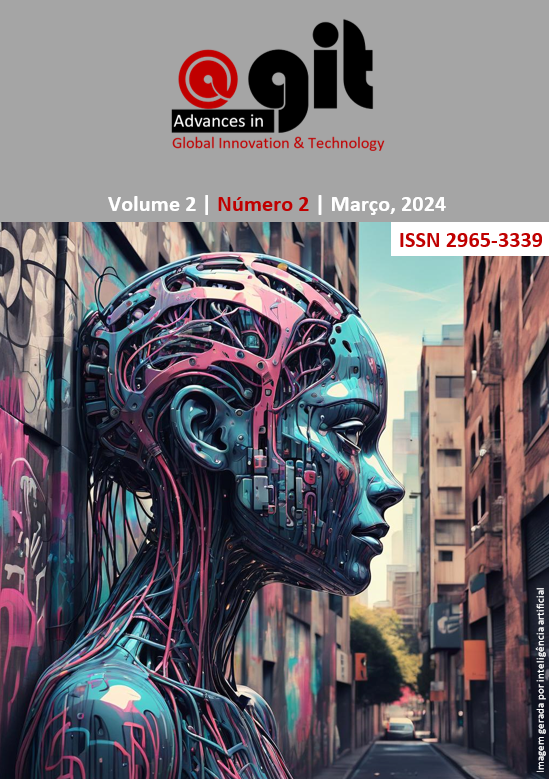O Papel Estratégico do Analista de Qualidade (QA) em Equipes SCRUM, Kanban e Scrumban no Desenvolvimento de Software Ágil
DOI:
https://doi.org/10.29327/2384439.2.2-3Keywords:
QA, Agile Teams, SCRUM, Scrumban, KanbanAbstract
During agile software development, software quality is a crucial focal point, depending on a key player and the collaboration of the entire team to achieve objectives. This key player is the Quality Analyst (QA). This article discusses the significance of QA as an active agent in agile development, with a focus on methodologies such as SCRUM, Kanban, and Scrumban. It assumes that the performance of QA plays a fundamental role in software development, engaging in a variety of activities throughout the development process. It explores how this role becomes strategic and has evolved over the years.To address this question, descriptive and exploratory research methodologies are employed, utilizing field research and interviews with experts possessing extensive experience in the field. The results confirm that QA work influences the quality of deliverables and yields many benefits. Acting as a quality assurance, the role involves a multidisciplinary professional who often extends beyond traditional functions due to their comprehensive project knowledge and involvement in the entire Software Development Life Cycle (SDLC), this factor is linked to project success and career evolution.
Downloads
References
ABHIJIT A. SAWANT, PRANIT H. BARI, P. M. CHAWAN Software Testing Techniques and Strategies. International Journal of Engineering Research and Applications vol.2, 2012.
AHMAD, M. O.; MARKKULA, J.; OIVO, M. Kanban in software development: A systematic literature review. 39th Euromicro Conference on Software Engineering and Advanced Applications. 2013.
AJAYI, Wumi et al. Implementing Quality Assurance in an Agile Software Development Process. International Journal of Innovative Science and Research Technology, v.7, 2022.
ASSOCIAÇÃO BRASILEIRA DE NORMAS TÉCNICAS. NBR ISO/IEC 9126: engenharia de software - Qualidade de produto - Parte 1: Modelo de qualidade. ABNT: Rio de Janeiro, 2013.Scrum Primer 2.0. Figure 1. <https://scrumprimer.org/scrumprimer20.pdf > Acesso em 20 set, 2023.kanbantool. Figure 2. <https://kanbantool.com/kanban-software-development> Acesso em 20 set, 2023.
BATISTA, Eraldo C.; MATOS, Luís Alberto L.; NASCIMENTO, Alessandra Bertasi. A entrevista como técnica de investigação na pesquisa qualitativa. Revista Interdisciplinar Científica Aplicada, Blumenau, v. 11. 2017.
CABAU, Augusto Ferreira; TONDATO, Rogério; TONDATO, Silvana Rodrigues Quintilhano. A Metodologia de gestão de projetos ágeis como ferramenta de melhoria em empresas. 2019. [18] f. Monografia de Especialização - Universidade Tecnológica Federal do Paraná: Londrina, 2019.
LAPORTE, Y, CLAUDE; April, Alain Software Quality Assurance. v.1 Editora John Wiley e Sons.Inc, 2018.
MOTA, Janine S. Utilização do Google Forms na Pesquisa Acadêmica. Revista Humanidades e Inovação, v. 6, 2019.
OLIVEIRA, R. L. F.; PEDRON, C. D. Métodos ágeis: uma revisão sistemática sobre benefícios e limitações. Brazilian Journal of Development, 7(1):4520–4534, 2021.
PATIL, S. P.; NEVE, J. R. Productivity Improvement of Software Development Process Through Scrumban: A Practitioner’s Approach. 2018 International Conference on Advances in Communication and Computing Technology (ICACCT), 2018.
PRESSMAN, Roger S.; MAXIM, Bruce R. Engenharia de software: uma abordagem profissional. Editora AMGH, 2021.
SANTOS, Lígia Cássia M. C.; PRADO, Edmir Parada V.; CHAIM, Marcos Lordello. Técnicas e ferramentas de detecção de vulnerabilidades e sua relação com métodos ágeis e modelos de qualidade de software e serviços. In: SIMPÓSIO BRASILEIRO DE SISTEMAS DE INFORMAÇÃO (SBSI), 15., 2019, Aracajú. Anais [...]. Porto Alegre: Sociedade Brasileira de Computação, 2019. p. 367-374.
SOMMERVILLE, IAN. Software Engeneering v.9, Editora Pearson, 2010.
VAN DAM, K. The Future of Testing: Digging in the Past of Software Testing and Unearthing the Future. In: The Future of Software Quality Assurance, Editor Stephan Goericke, 2020.ISO/IEC 25010:2011 <https://www.iso.org/standard/35733.html>.
Downloads
Published
How to Cite
Issue
Section
License
Copyright (c) 2024 Victor Zamora Semerano

This work is licensed under a Creative Commons Attribution-NonCommercial-ShareAlike 4.0 International License.
Copyright Policy
By submitting a manuscript for publication in the journal Advances in Global Innovation & Technology (@_GIT), authors agree, in advance and unrestrictedly, to the following terms:
- The authors retain the copyright and grant to the Journal Advances in Global Innovation & Technology (@_GIT) the right of first publication of the manuscript, without any financial burden, and waive any other remuneration for its publication in the Journal of Advances in Global Innovation & Technology (@_GIT).
- Upon submission to the Journal of Advances in Global Innovation & Technology (@_GIT), the manuscript is automatically licensed under the Creative Commons Attribution License, which allows the sharing of the work with acknowledgment of authorship and initial publication in the Journal Advances in Global Innovation & Technology (@_GIT).
- Authors are authorized to enter into additional contracts separately, for non-exclusive distribution of the version of the work published in the Journal Advances in Global Innovation & Technology (@_GIT) (publish in repositories or as a book chapter), with acknowledgment of the initial publication in the Journal Advances in Global Innovation & Technology (@_GIT), provided that such agreement does not imply an endorsement of the content of the manuscript or the new vehicle by the Journal of Advances in Global Innovation & Technology (@_GIT).
- Authors are allowed and encouraged to publish and distribute their work online, in institutional repositories, for example after the editorial process is completed.
- The authors warrant that they have obtained proper permission from their employers for the transfer of rights under this agreement, if those employers own any copyright in the manuscript. In addition, the authors assume any and all responsibility for possible copyright infringements of these employers, exempting Advances in Global Innovation & Technology (@_GIT) from any and all liability in this regard.
- The authors assume all responsibility for the content of the work, including the due and necessary authorizations for the disclosure of data collected and results obtained, exempting the Journal of Advances in Global Innovation & Technology (@_GIT) from any and all liability in this regard.













